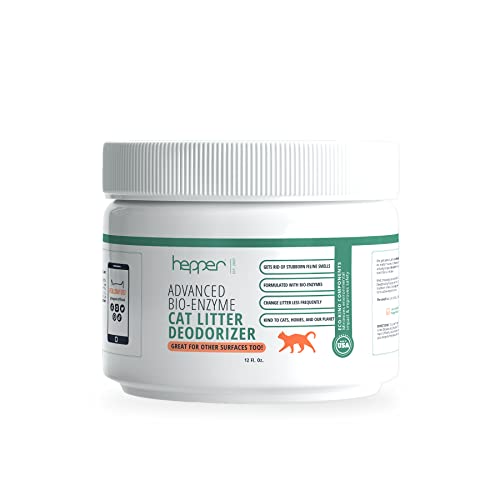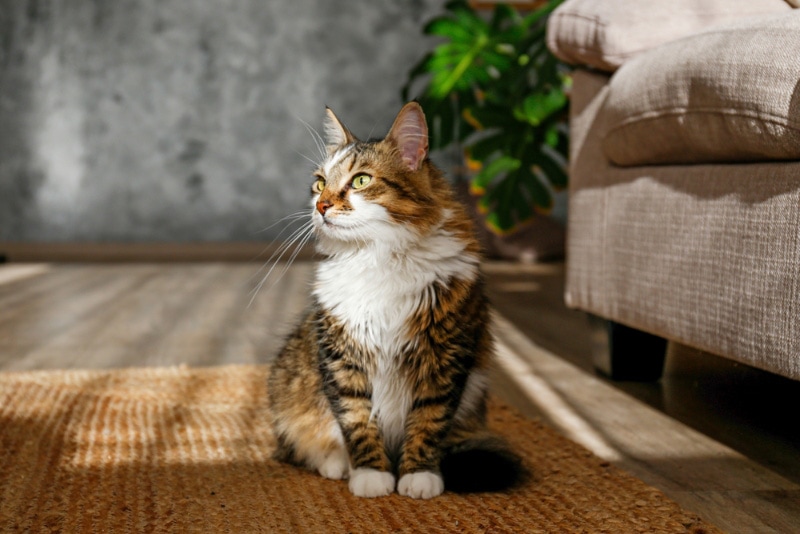Why Does My Cat Pee on the Floor? 8 Possible Reasons & Solutions
By Jessica Kim
Updated on
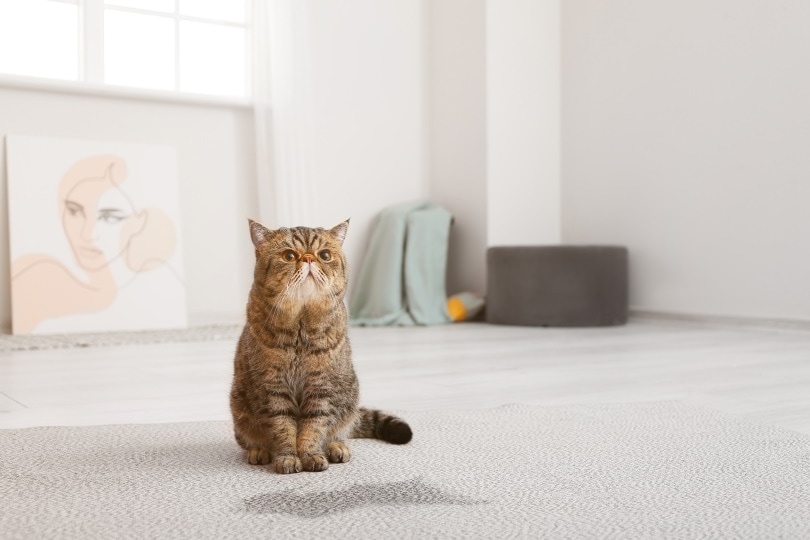
Cats are known to be very tidy animals. They’re usually able to groom themselves, and they can quickly learn to use a litter box.
However, there are some instances where cats may not use a litter box. Sometimes, it’s because they never got into the habit when they were kittens, or they may develop this behavior over time. There are also some instances where there are issues with the litter box that discourage cats from using it.
Here are eight possible reasons why cats may pee on the floor.
Top 8 Reasons Cats Pee on the Floor:
1. Not Enough Litter Boxes
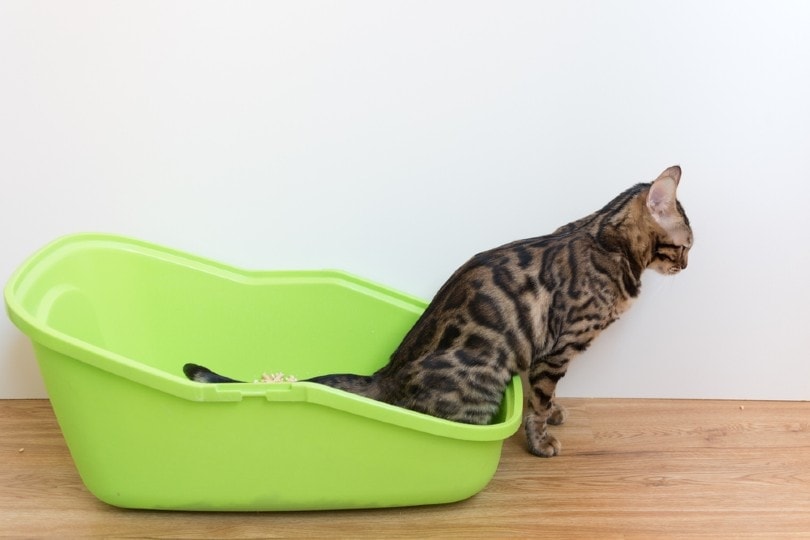
Sometimes, cats can end up peeing outside of the litter box because there aren’t enough litter boxes. An overcrowded litter box can deter cats from using them, especially if you have multiple cats in your home. In such cases, your cats will not want to step on each other’s messes and would rather pee outside of the litter box.
Generally, you should have one litter box per cat plus one extra. For example, if you have one cat, you should have a minimum of two litter boxes. If you have two cats, you should have at least three litter boxes.
2. Litter Box Is Too Dirty
Since healthy cats like to keep clean, they won’t use a litter box if it’s too dirty and filled with urine and feces. They may resort to peeing near the litter box but not inside it. If you notice that your cat is peeing around a litter box, try emptying it out more frequently. Clumping litter should be scooped daily or every other day and be completely cleaned out every 2–3 weeks. If you have clay litter, it should be cleaned out every other day or twice a week.
Messes and smells are part of living with a cat, but you don't want to spend your whole day cleaning!
- Bio Enzymatic Cat Litter Freshener - Smart formulation uses natural ingredients eliminating cat...
- Save Money - Stuff for cats isn’t the cheapest. With this litter box odor eliminator, you’ll...
Our Hepper Advanced Bio-Enzyme Cat Litter Deodorizer can help keep your litter box smelling fresh for longer. This natural litter additive uses bio-enzymes to "eat away" the odors, saving you time and money. It's fragrance-free, safe for cats of all ages, effective on all types of litter, and fully biodegradable.
3. Litter Box Is Too Small

Cats can have their preferences and may not use a litter box if it’s too small. This may be because they really don’t want to step on any urine or feces.
Even smaller cat breeds may want to use a litter box that’s designed for larger cat breeds. So, you can always try switching out a small litter box for a larger size and see if your cat decides to use the bigger one.
4. Litter Box Is Too Hard to Reach
Litter boxes can be an unpleasant sight to see in a home. However, if its location is too discreet, your cat may not be able to get to it on time and end up peeing on the floor.
Try to relocate the litter box to a place in the home that’s away from too much noise or distraction, but it isn’t in a far corner of the house. If you’re concerned about the sight of the litter box, you can always purchase one that has a cover. There are also special cabinets and drawers that are designed to hide litter boxes.
5. Litter Box Is in a Busy Location
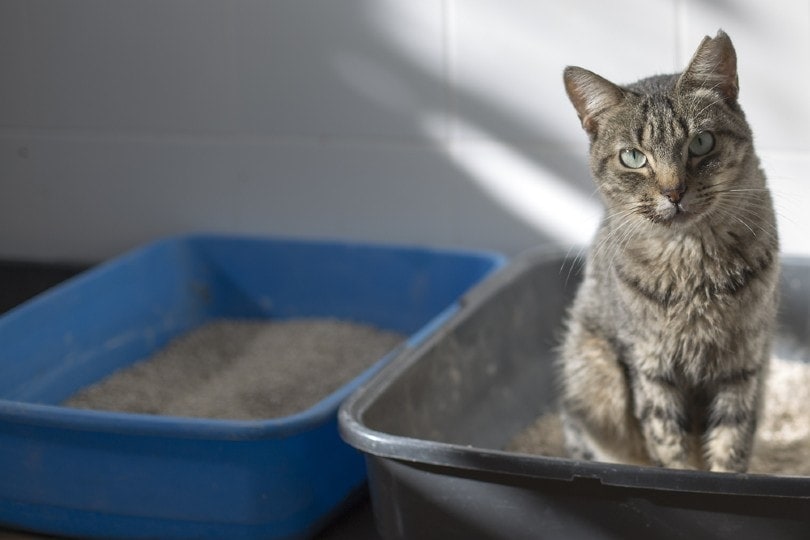
If a litter box is located in a spot where there’s a lot of action, your cat may not want to use it. Peeing and pooping put cats in a vulnerable position, so they want to feel as safe as possible when they’re relieving themselves.
The best places to put litter boxes are spots that are quiet and easily accessible. Some cats may even prefer a cover for additional privacy.
6. Cat Doesn’t Like Litter Texture
Cats can be picky and finicky animals and have been known to be particular about their cat litter. There are different types of textures and scents that can deter cats from using a litter box. Completely litter box-trained cats can end up peeing on the floor if you suddenly switch out their litter, and they don’t like the smell or texture of the new litter. The best way to change out cat litter is to do it slowly and incrementally so that your cat doesn’t notice any drastic changes.
7. Cat Is Being Territorial
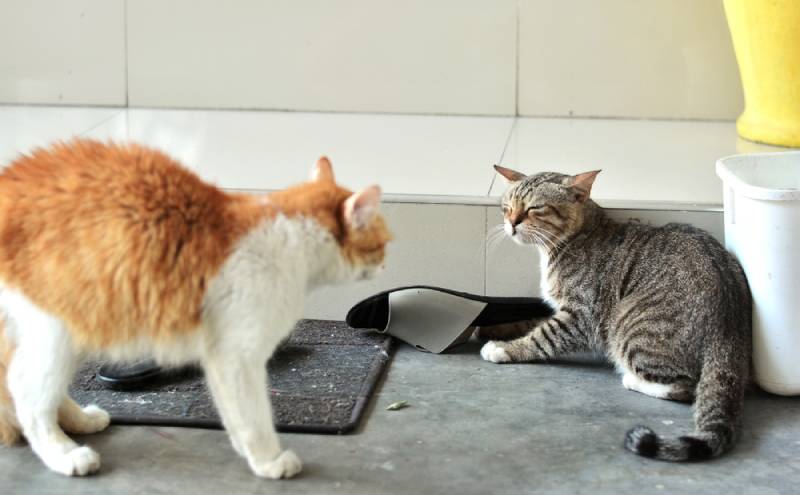
When cats are territorial, they’ll usually end up engaging in urine marking. This can happen when there are multiple cats in a home, and there isn’t enough space for them to have their own territories. Unneutered cats can also urine mark to establish their territory or signify that they’re ready to mate.
Before bringing home a new cat, make sure that you have plenty of space to house it. It can also take a lot of time for cats to get used to each other, so it’s best to introduce them slowly and allow them to have their own spaces before completely integrating them into the home.
8. Cat Has Health Concerns
Sometimes, cats can end up peeing on the floor because of a health concern, such as a urinary tract infection (UTI). A symptom of UTIs is increased urination. So, if you notice that your cat has been peeing more frequently and is unable to make it to the litter box on time, it may be time to visit the vet. Your vet can conduct a thorough assessment to determine if your cat has a UTI or another urinary tract issue, such as bladder stones.
Additional Tips to Prevent Cats From Peeing on the Floor
Along with trying out the different suggestions we’ve provided, it’s important to properly clean up cat urine. Cats will be attracted to the smell of pee and will pee in the same spots, and cat urine stains can be especially stubborn to clean up. When cleaning up cat urine, try to use an enzymatic cleaning spray. Bio-enzymes help break down the components in cat urine so that they’re easier to wipe up from carpets and hard surfaces. They also help with deodorizing and eliminating smells to discourage cats from revisiting spots outside of the litter box.
Our favorite enzyme cleaner for eliminating pet smells and stains is our very own Hepper Advanced Bio-Enzyme Pet Stain & Odor Eliminator Spray. It makes clean-up a breeze because it permanently removes even the very worst smells and stains (urine, feces, vomit, you name it!) from basically any surface you can imagine.
- ADVANCED ENZYMATIC CLEANER - Penetrates the most stubborn smells and stains at the deepest molecular...
- FOR ANY MESS, ON ANY SURFACE - This pet odor eliminator cleans your carpets, floors, furniture,...
 Conclusion
Conclusion
There are several reasons why cats will start to urinate outside of the litter box and on the floor. The best way to stop this is to observe your cat’s behavior and determine if the size of the litter box and its placement are favorable for your cat.
If you ever have any trouble with urine marking, you can always consult with your veterinarian or a reputable cat behaviorist to help you navigate this challenging situation. Good luck!
Featured Image Credit: Pixel-Shot, Shutterstock

